
11 AI Tools for Sales Reps: Boost Sales Cycle Performance
Becca Eddleman
Today’s B2B sales cycles are longer and more complex than ever. Sales reps are expected to manage more accounts, respond faster, and personalize deeper, all while keeping pipeline spotless and forecasting airtight.
That’s where AI comes in. It’s no longer a trendy buzzword. It’s the new sales assistant, research analyst, and performance coach rolled into one.
This guide cuts through the noise. Instead of offering a random list of tools, we’re showing you exactly which AI platforms matter at each stage of the sales cycle, from discovery to close.
Here’s a snapshot of how the right AI tools transform each stage:
-
- Discovery & Demo – Convert qualified leads with on-point research and personalized demos
- Meeting Preparation – Show up with strategic context that advances every conversation
- Pipeline Management – Maintain momentum with tracked follow-ups and forecasting tools that de-risk deals
- Objection Handling – Respond confidently with real-time coaching and proven talk tracks
- Proposals/SOW – Deliver custom, compelling proposals in hours, not days
- Closing – Lock in deals with predictive insights and priority deal alerts
Let’s walk through the tools that actually help reps win at each critical stage.
Related Content: 27 Best AI Sales Tools for 2025
Discovery & Demo AI Tools
Once a qualified lead enters your pipeline, your first call is the moment of truth. This isn’t about finding leads; it’s about earning the right to advance them. The best reps use this stage to uncover core challenges, differentiate fast, and craft custom demos.
Why This Stage Matters
The first meeting sets the tone for the entire deal. A strong discovery call reveals the “why now,” aligns with business priorities, and builds urgency. A generic or misaligned pitch? That’s how you get ghosted. Your ability to convert pipeline hinges on what happens in this critical moment.
Common Friction
-
- Reps show up underprepared, asking surface-level questions.
- Demos are feature-heavy instead of outcome-driven.
- Lack of insight into buyer context leads to missed resonance.
1. Skaled’s Discovery Call GPT
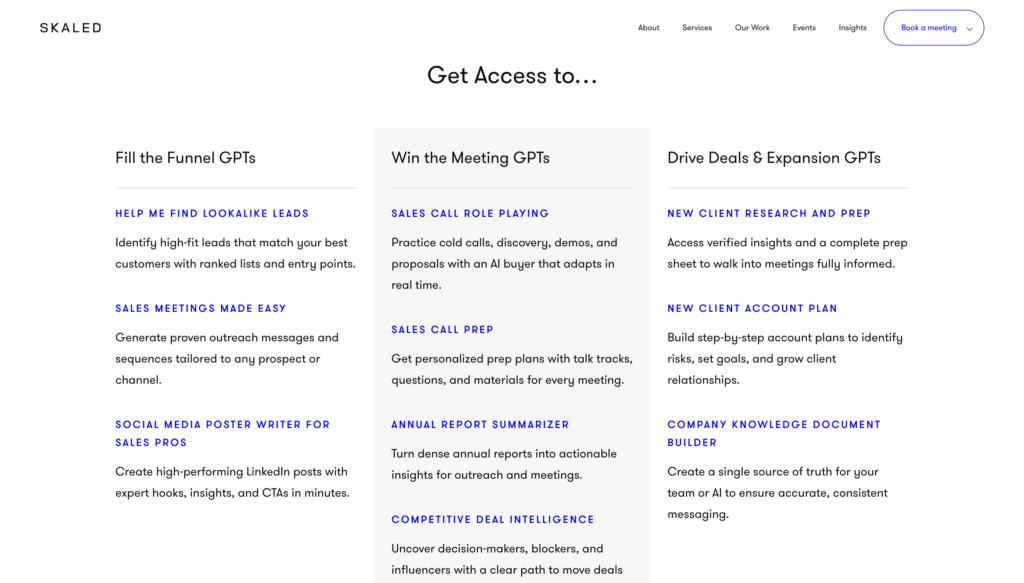
This AI-powered prep assistant turns CRM notes and call history into a strategic call guide. It suggests tailored discovery questions, surfaces likely objections, and outlines potential value drivers. With this Discovery Call GPT, reps can create better call outcomes and consistently uncover business priorities that competitors miss.
Key Features:
-
- Generates prospect-specific prep based on meeting type, role, and offer
- Provides consultative questions, fit hypothesis, and custom agendas
- Structures demos using outcome-driven “show-tell-show” framing
2. Demostack
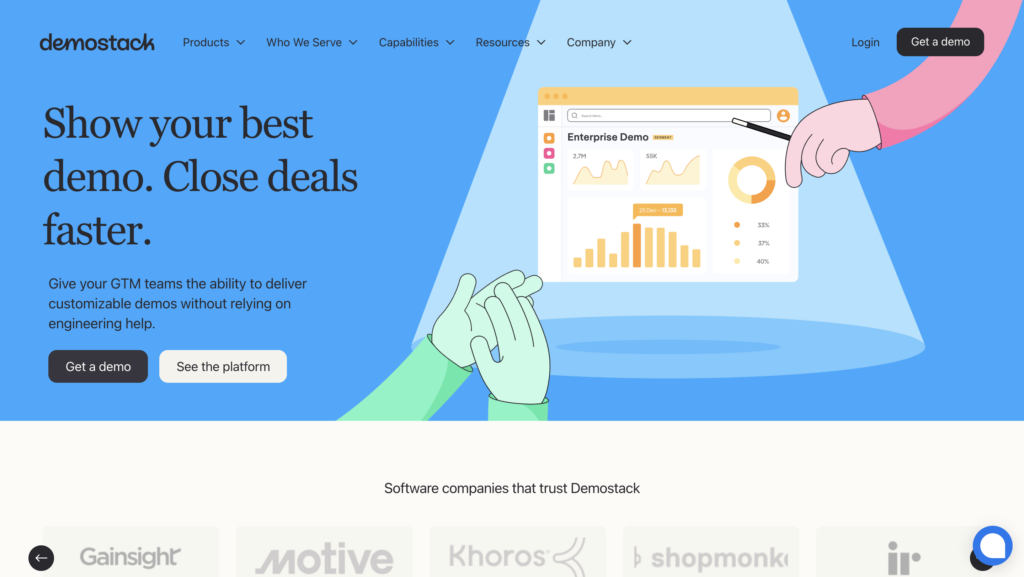
Demostack lets you build custom, no-code product demos in minutes. It clones your SaaS environment and personalizes the experience to match the prospect’s use case, title, and pain points without any help from engineering.
Key Features:
-
- No-code environment for custom demo creation
- Clones full product experience for vertical or persona-specific demos
- Enables fast personalization without engineering support
The impact of AI-powered discovery is real. In a new Gong study, sales teams implementing AI-driven strategies see a 70% improvement in lead conversion rates compared to manual approaches. This dramatic improvement stems from AI’s ability to surface prospect insights and industry context that reps would miss through traditional research methods.
Explore Demostack
Later-Stage Meeting Preparation AI Tools
By the time you reach mid- or late-stage meetings, your prospect knows the basics. These conversations are about alignment, risk mitigation, and ROI. Every meeting at this stage is a chance to de-risk the deal or watch it stall.
Why This Stage Matters
Late-stage meetings often include new decision-makers and added scrutiny. Reps must anticipate objections, resell the value story, and speak to both users and execs. Preparation needs to go beyond notes. You need strategic context.
Common Friction
-
- Reps treat these meetings like early-stage discovery calls.
- Inconsistent messaging across meetings or reps.
- No insight into what matters most to different stakeholders.
3. Humantic AI
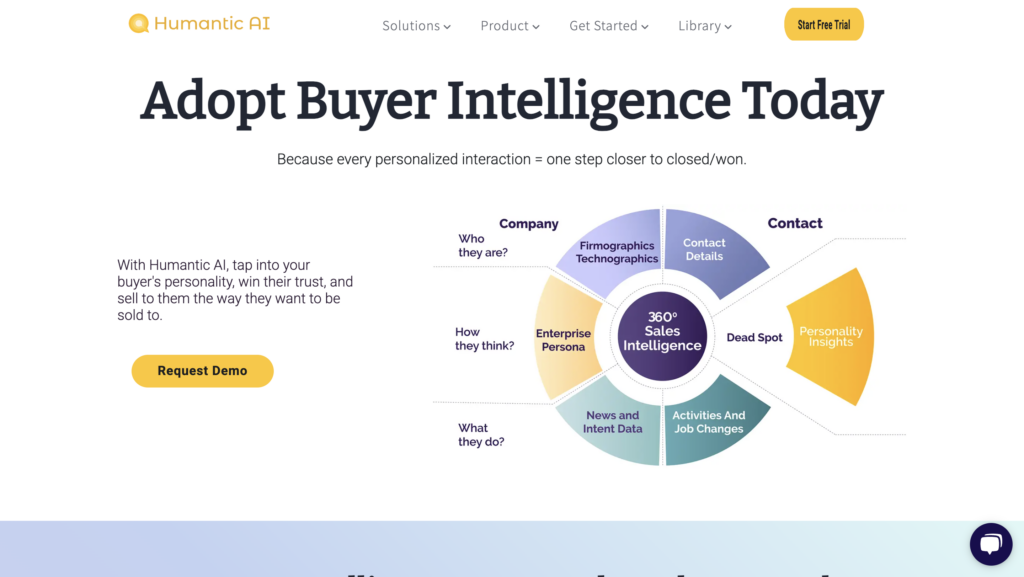
Humantic creates behavioral and personality insights based on your buyer’s digital footprint. It equips reps with intel on communication style, priorities, and decision triggers. Your follow-up isn’t just personalized, it’s psychologically precise.
Key Features:
-
- Behavioral and psychographic profiling from public data
- Recommends tone, message structure, and persuasion tactics
- Personalization engine for multi-threaded sales engagement
4. People.ai
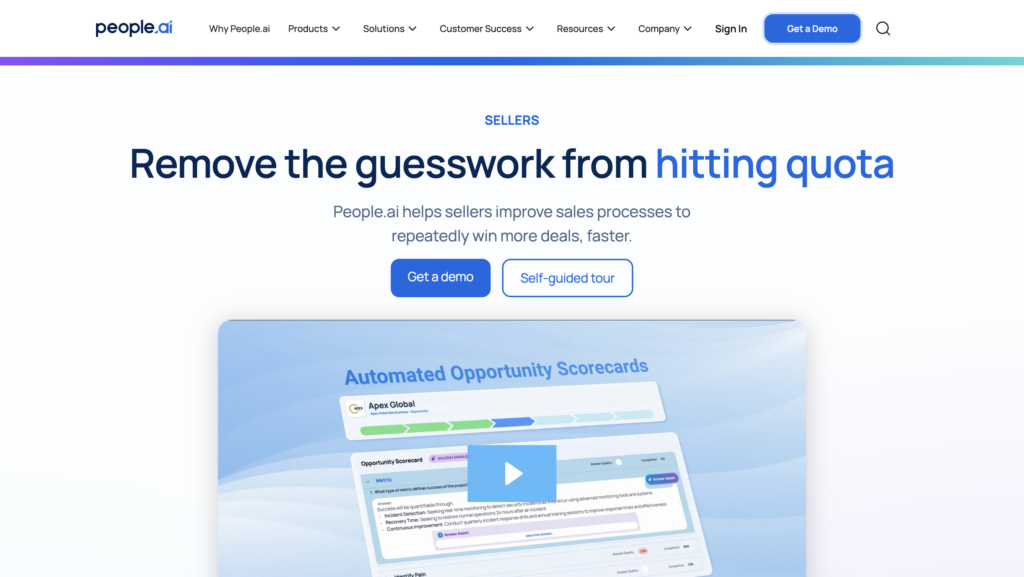
This tool analyzes rep activity, stakeholder engagement, and deal dynamics to identify gaps before meetings happen. It flags if key stakeholders are missing, helps reps prioritize next actions, and ensures the right people are in the room.
Key Features:
-
- Tracks rep and buyer activity across sales tools
- Identifies gaps in stakeholder engagement
- Provides deal health and activity insights for pipeline prioritization
AI adoption already creates a 33% increase in overall sales efficiency. With the right preparation tool, reps can focus more on high-value activities like relationship building and strategic planning.
Pipeline Management & Follow-Up AI Tools
Once a deal is in motion, velocity matters. Pipeline management isn’t just about updating the CRM.t’s about proactively identifying risk, prioritizing high-value opportunities, and ensuring nothing slips through the cracks.
Why This Stage Matters
Deals don’t die because of “no.” They die from inaction. Reps who stay on top of follow-ups and deal health close more, faster. But when reminders live in sticky notes or mental to-do lists, things fall apart.
Common Friction
-
- Follow-ups go cold due to lack of time or tracking.
- CRM updates are incomplete or lag behind real activity.
- Managers have no visibility into deal risk until it’s too late.
5. Clari
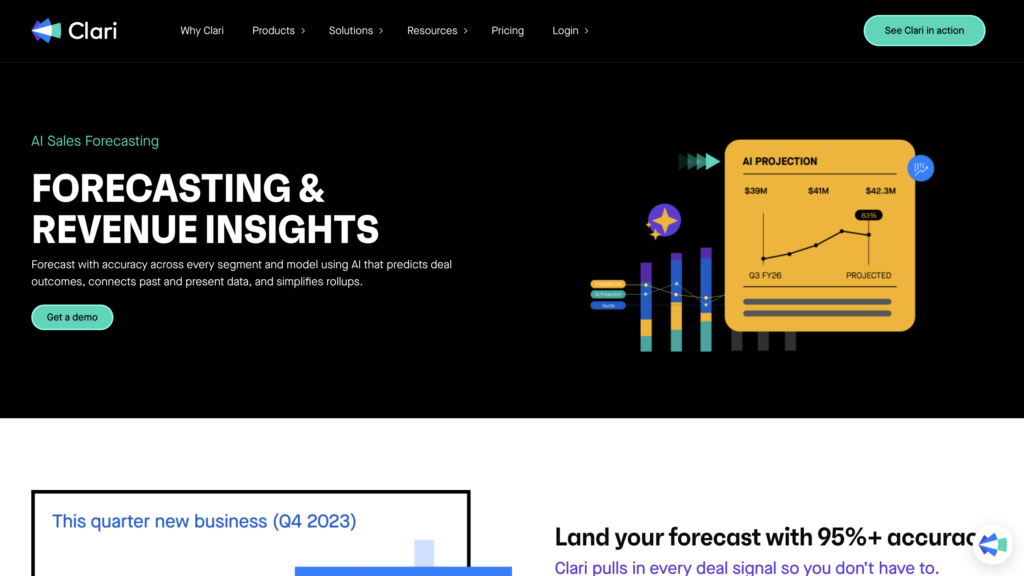
Clari transforms how teams manage their forecast and pipeline. It uses AI to detect risk signals, analyze activity, and forecast revenue in real time. This give reps and managers a shared, proactive view of what needs attention now.
Key Features:
-
- Real-time deal scoring and risk detection
- Pipeline forecasting with predictive insights
- Unified view for reps and managers to manage revenue flow
6. Otter.ai
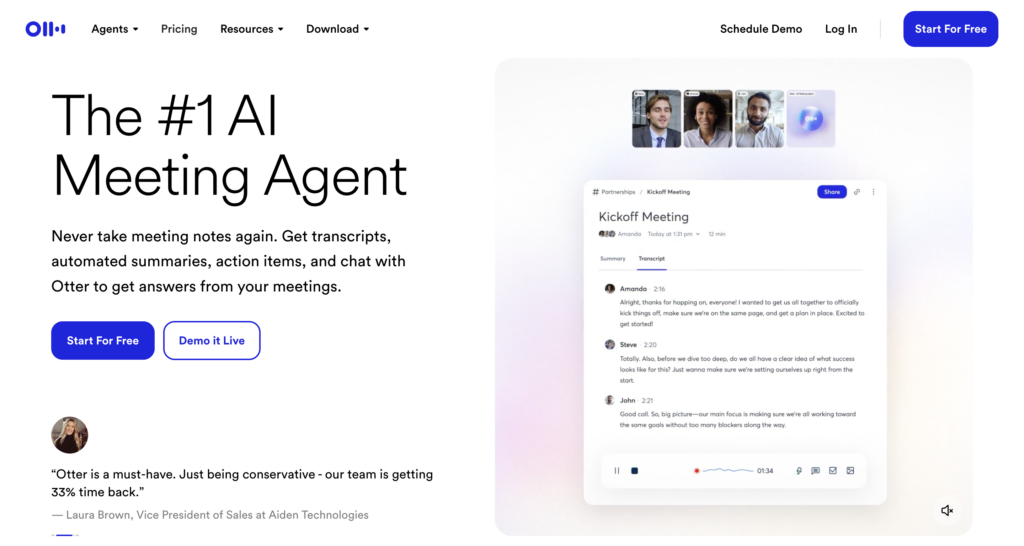
Otter goes beyond transcription. It automatically generates AI-powered meeting summaries, identifies key action items, and syncs notes to your CRM. Reps can instantly follow up with precision and never miss a detail again.
Key Features:
-
- Automatic meeting transcription and summaries
- Action item detection with real-time follow-up drafting
- CRM sync to reduce manual data entry
Also, accurate forecasting helps deals progress. Salesforce research shows that 80% of sales reps found it easier to get actionable customer insights with AI forecasting tools. Teams can make better strategic decisions and identify potential issues before they derail deals.
Objection Handling AI Tools
Objections are opportunities to build trust, clarify value, and reinforce urgency. But only if your reps are equipped to handle them in the moment, not after the fact.
Why This Stage Matters
Reps don’t lose deals because objections happen. They lose them when objections go unaddressed. The way you handle a tough question or moment of doubt can either validate your solution or push the buyer to look elsewhere.
Common Friction
-
- Reps freeze or overreact when objections catch them off guard.
- Responses lack depth or come off as defensive.
- No system for tracking or coaching around recurring objections.
7. Gong
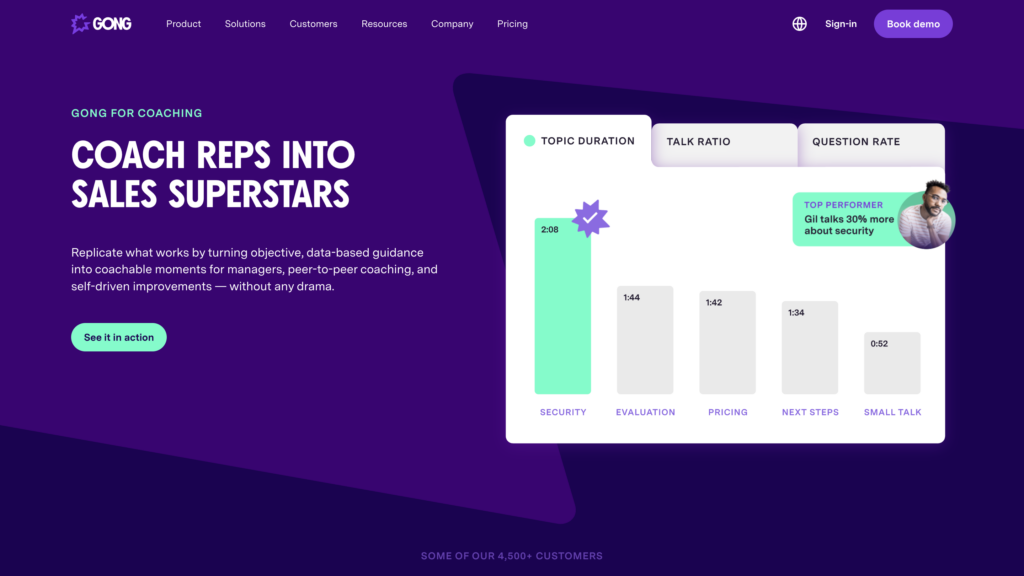
Gong captures and analyzes sales conversations across channels. But its real power? It detects objection moments in real time, flags patterns across your team, and gives managers the insight to coach proactively. Timely help before deals derail.
Key Features:
-
- Conversation intelligence with real-time objection detection
- Pattern recognition for coaching and training
- Performance insights at team and individual levels
8. Salesken
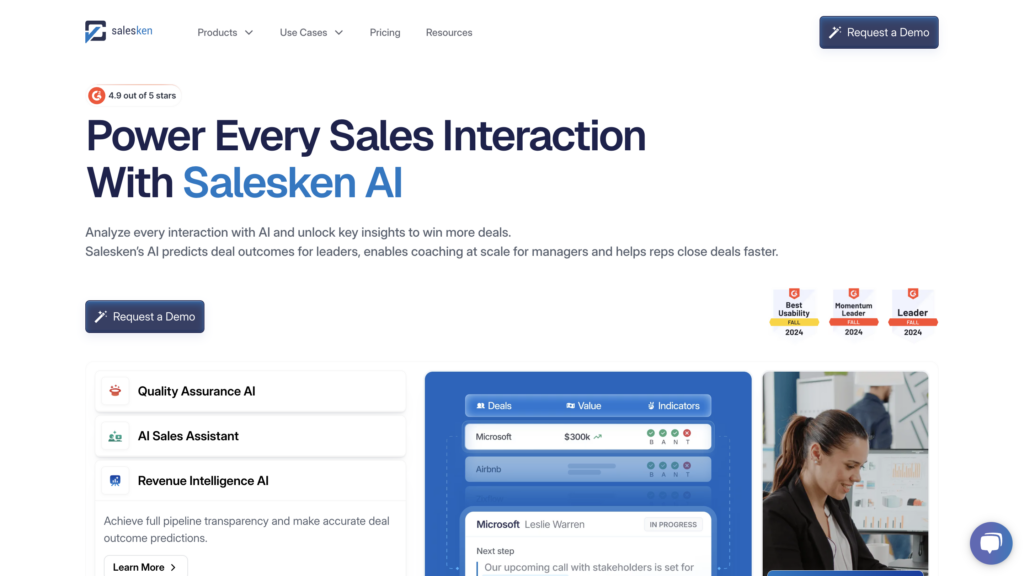
Salesken works like a real-time copilot. During calls, it surfaces dynamic prompts to help reps respond real-time to objections with relevant proof points, case studies, or talking tracks.
Key Features:
-
- In-call coaching and AI-suggested prompts
- Real-time objection response surfacing
- Historical call analysis to improve rep response quality
Sales reps using AI-driven tools experience up to a 35% increase in deal when rates, according to the Gong. Thanks to specific features. For example, smart trackers and real-time insights help reps respond more effectively to prospect concerns and objections
Proposal/SOW AI Tools
When you reach the proposal or Statement of Work (SOW) stage, precision matters more than persuasion. This is the moment to translate excitement into structure and signal that your team is as sharp operationally as it is strategically.
Why This Stage Matters
This isn’t just paperwork. It’s your solution in black and white. A compelling, well-aligned proposal accelerates the close. A generic one introduces risk, confusion, and delays. This is your chance to reinforce value and momentum with clarity.
Common Friction
-
- Reps reuse outdated templates or rely on manual formatting.
- Proposals are misaligned with deal specifics, creating back-and-forth.
- Delays at this stage stall urgency and signal sloppiness.
9. GetGenerative.ai
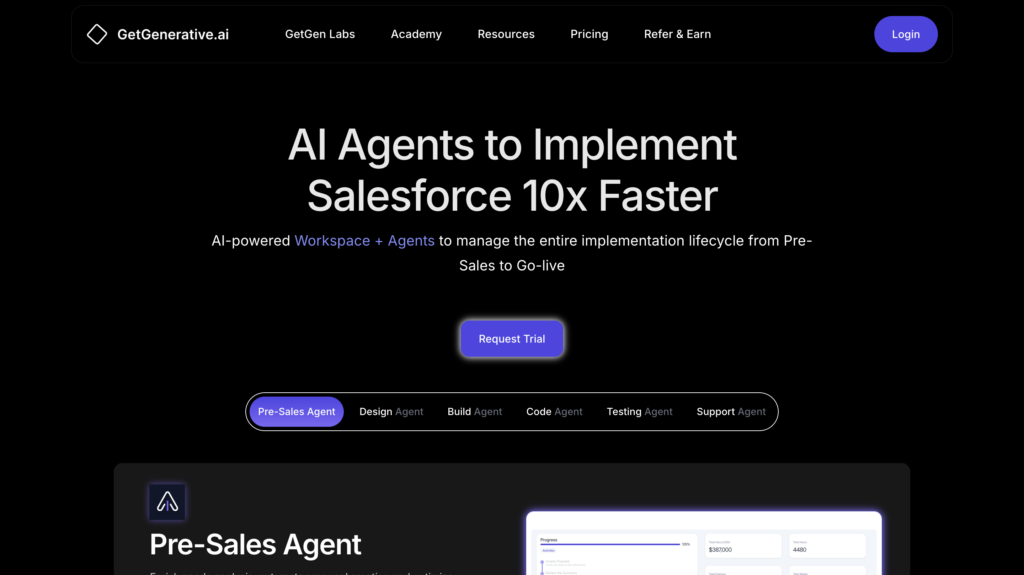
GetGenerative automates proposal creation by pulling data directly from your CRM and deal notes. It uses AI to generate tailored content, ensuring speed and accuracy while still feeling customized to the buyer’s goals and context.
Key Features:
-
- AI-generated proposals from Salesforce or CRM inputs
- Smart templates with embedded client data
- Speeds up deal desk operations and custom proposal output
10. Responsive.io
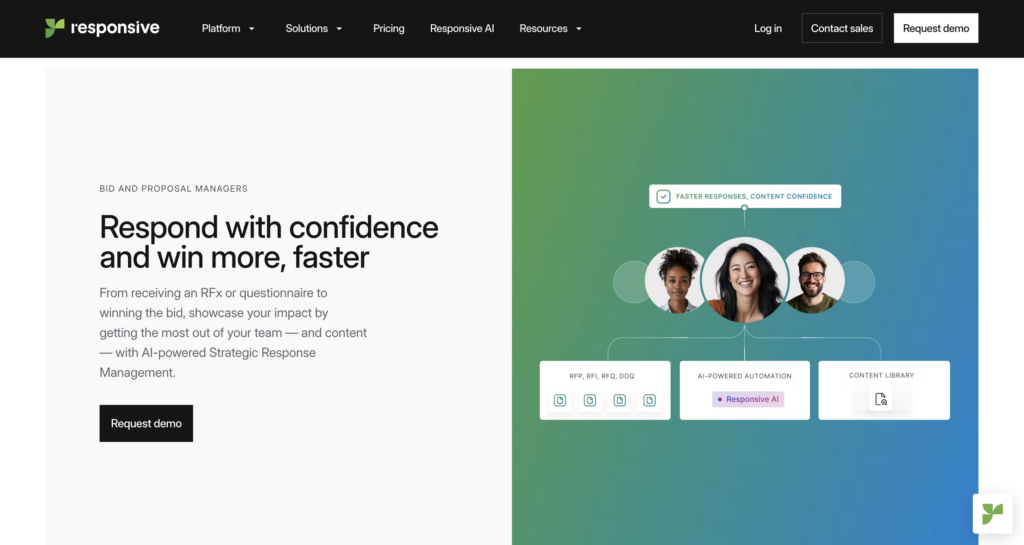
Responsive enables collaborative, AI-supported proposal development.This is perfect for complex or multi-stakeholder deals. It helps standardize quality, surface relevant content, and speed up turnaround time with smart formatting and suggestions.
Key Features:
-
- AI-suggested answers and content for proposals and RFPs
- Collaboration across internal stakeholders
- Automated formatting and approval workflows
Sales Closing AI Tools
You’ve navigated objections, delivered the proposal, and now it’s time to finish strong. Closing isn’t just about getting the signature—it’s about removing doubt and reinforcing urgency. Give buyers the confidence to say “yes” now, not later.
Why This Stage Matters
The closing phase is where deals are won,or slowly lost. It’s often where legal, procurement, or executive sponsors enter the conversation. This is when hidden blockers surface, and momentum either accelerates or evaporates.
Common Friction
-
- Reps misread buying signals or slow-play urgency.
- Decision-makers go dark due to unclear next steps.
- Managers lack insight to intervene on at-risk late-stage deals.
11. Aviso AI
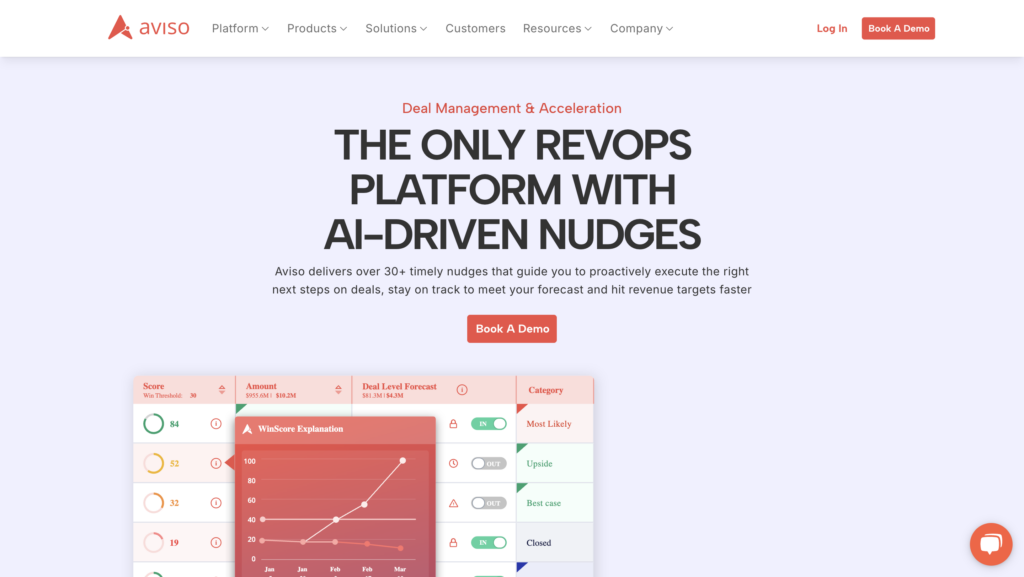
Aviso uses predictive deal scoring to help reps and managers spot where deals may stall. It brings AI-driven insights to the finish line, surfacing risks and next-best actions based on historical win/loss data.
Key Features:
-
- Predictive win scoring and deal trajectory alerts
- Next-best action suggestions based on deal history
- Revenue forecasting across sales stages
People.ai (again)
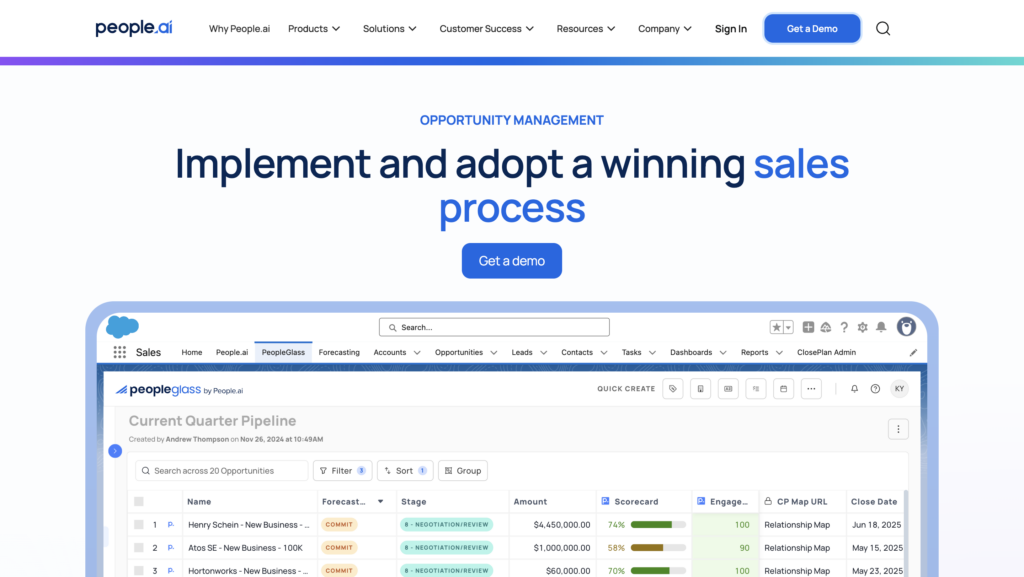
People.ai pulls data from rep activity across tools to spotlight high-value deals that need attention. It ensures the right stakeholders are looped in, and that reps stay laser-focused on the opportunities most likely to close.
Key Features:
-
- Aggregates rep activity data from email, calendar, and CRM
- Prioritizes high-value deals and accounts
- Flags when key decision-makers are missing from the sales motion
Final Takeaways: Match Tools to the Moment
By 2027, 95% of seller research workflows will begin with AI. Its growing role is helping reps focus their time on the most promising opportunities and close deals more efficiently. Sales reps need the right toolset at the right moment. The best AI tools aren’t just functional—they’re contextual. They reduce friction, accelerate execution, and adapt to how your team sells, not the other way around.
Action Steps:
- Audit your stack – Map each sales stage to rep behavior, then align the right tools.
- Start where friction is highest – Implement practical AI solutions that target specific friction points into your current process.
- Prioritize adoption – Even the smartest tools fail if reps don’t use them. Have a plan in place for change management.
AI tools for sales reps are here to free your team to be more human where it matters most: discovery, trust-building, and closing.